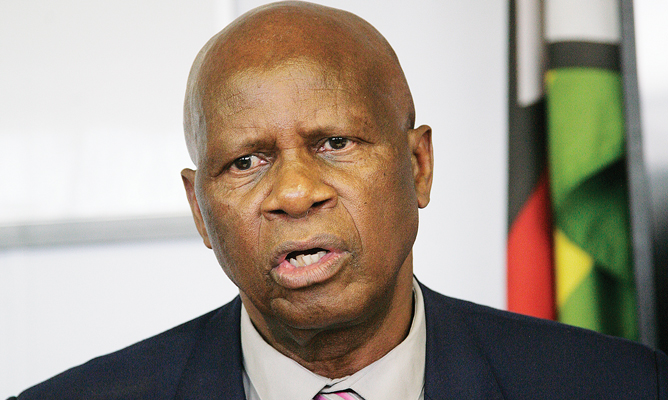
The $4 billion Batoka Power Project will see the share of Zimbabwe’s renewable energy sources in electricity nearly doubling to 80%, Finance minister Patrick Chinamasa has said.
BY BUSINESS REPORTER

An investment conference is set for Livingstone this week to raise funding for the project, which will be jointly owned by Zimbabwe and Zambia.
Chinamasa told a media briefing on Thursday that other than creating jobs, the project would result in the share of renewable energy increasing from the current 42%.
“The project will raise the share of renewable energy sources in electricity from 42% to 80%. This will ensure that we comply with the environmental requirements guiding the level of carbon emissions,” he said.
The project will generate 1 200 megawatts each for Zimbabwe and Zambia.
Zimbabwe’s electricity is generated at Kariba power station (hydro), Hwange (thermal) and three small thermal power stations in Harare, Bulawayo and Munyati.
A number of independent power producers have been licenced, but have failed to take off.
- Chamisa under fire over US$120K donation
- Mavhunga puts DeMbare into Chibuku quarterfinals
- Pension funds bet on Cabora Bassa oilfields
- Councils defy govt fire tender directive
Keep Reading
The Batoka hydro project has been on the cards for a long time and its feasibility study was done in 1993.
Chinamasa said there was an urgent need to revisit the feasibility report given the time that had lapsed since 1993.
“As a result, the Zambezi River Authority engaged consultants to update the feasibility studies through a grant of $6 million under the Multi-Donor Trust Fund for cooperation in international waters in Africa administered by the World Bank. The feasibility updates should be done by December this year,” he said.
Chinamasa said the 34th Council of Ministers meeting in December approved the development model for the Batoka Gorge hydro-electric scheme, that the dam would be owned by the Zambezi River Authority and the financing model comprising of debt and grants would be raised from the private sector and development financial institutions.
“. . . the power plant would be developed under a project finance structure owned by a special purpose vehicle with funding coming from the private sector and our respective utility companies,” he said.











